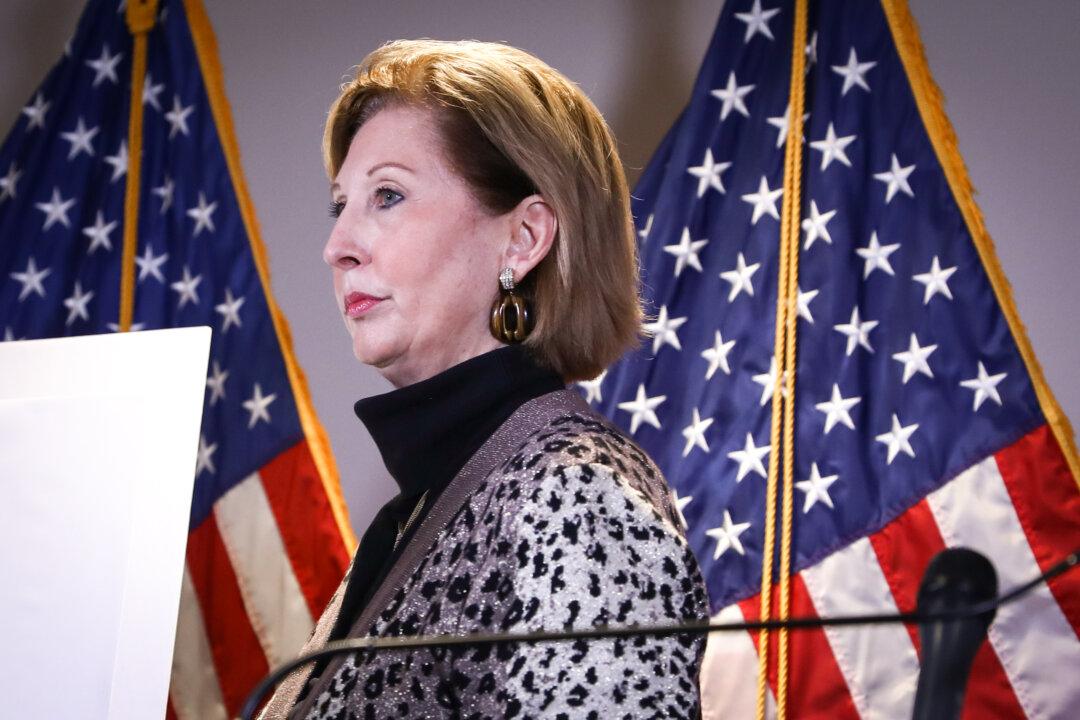Sidney Powell, the former prosecutor and lawyer who challenged the results of the 2020 presidential election, has asked a judge in Georgia to dismiss her part of the state’s case that includes former President Donald Trump, according to a Sept. 13 motion.
The case was brought on Aug. 14 by Fulton County District Attorney Fani Willis, alleging that the challenges mustered by President Trump, Ms. Powell, and 17 others against the election results amounted to a racketeering conspiracy.





